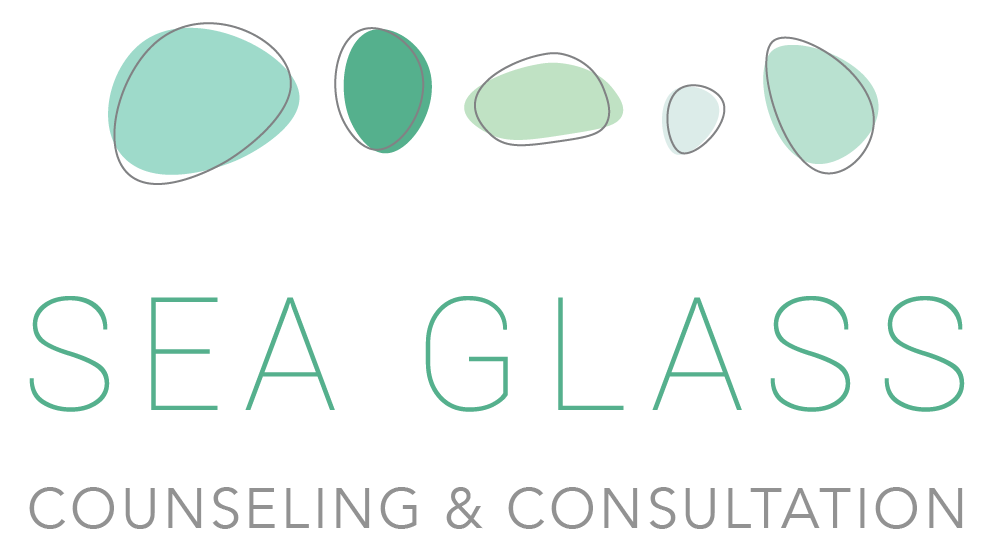Mental Health Stigma in Church
Attending church every Sunday and praying are common occurrences among Christians.
You may pray before you eat a meal. If you're feeling gracious or lucky about something, you may pray as a way of saying thank you. Before bed, your parents may have had you kneel beside your bed and say good night prayers before drifting off to sleep at night.
You pray through the good times and the bad. You put your trust in God. He has a plan for everyone. He doesn't give you anything you can't handle - or so you’ve been told. You’re waiting patiently for God to bring about change in His timing. But what if you need someone's help a little sooner than God's plan?
There’s so many reasons why mental health stigma exists among Christians. Let’s break down a few of them.
Reasons Why There Is Stigma About Mental Health For Christians
It's a “spiritual matter”
Not every Christian believes that mental illness doesn't actually exist, but this statement is common across many churches that it’s worth including. Many individuals were raised on the belief that mental illness isn't actually real. Although mental illness is physiological, many Christians believe that it's only a spiritual matter, only to be dealt with by spiritual leaders.
The truth is that mental health is completely real. It’s not “all in your head.” There is significant research to support the prevalence and validity of mental health issues. Millions of Americans alone experience anxiety (that number was up to 39.3% in 2023) - and Christians aren’t exempt from experiencing these concerns. Christian women actually have a higher than average chance of developing vaginismus - a medical condition heavily influenced by trauma and mindset.
And just as you’d trust a dentist to deal with your teeth issues, and a cardiologist to deal with your heart issues - you need a licensed mental health professional to deal with mental and emotional issues, particularly if there’s trauma. Research shows that untrained professionals, particularly in the spiritual community, cause greater harm than good when trying to deal with mental health concerns. Why? They lack the required education and training to appropriately treat it.
It's a “sign of weak faith”
Bible verses are left open to interpretation. Unfortunately, this means that many people have read into some verses claiming that mental health issues are a sign of weak faith - or that having emotions altogether is wrong, sinful. (I really love this Bare Marriage podcast episode that explores the history of that idea and why it’s incorrect.)
Let’s not forget that the Bible has been twisted in all sorts of ways throughout history to support ideas that are without a doubt harmful to people, rather than loving them like Christ (slavery; the Inquisition; the oppression of women, the LGBTQ community, and many other minority peoples and groups; purity culture, to name a few). Similarly, the Bible has been twisted to promote the idea that mental health concerns or experiencing common human emotions like anxiety, stress, fear, doubt, sadness, grief, pain, or trauma - are a sign of weak faith or sinful. Notice that none of the “positive” emotions seem to ever be deemed “sinful”? (Unless it’s ‘“too much” positive emotions, like pleasure.) However, if we really believe that Jesus was fully human as well as fully God, that means He also experienced the full range of human emotions.
Just as you’d trust a dentist to deal with your teeth, and a cardiologist to deal with your heart - you need a licensed mental health professional to help you move through mental and emotional concerns, particularly if there’s trauma.
Belief that prayer alone should cure mental health issues
Prayers are a common occurrence throughout the Christian religion. There's a belief that if an individual prays “hard enough” or “the right way” then their mental health issues will go away on their own. However, most people don’t find that belief lines up with their lived experiences. I work with a lot of Christians who finally decide to come see me because prayer alone hasn’t been helpful. A high percentage of people even seek out physical medical interventions first for diagnosable mental health conditions like anxiety.
In most Christian communities, serious physical illnesses are treated beyond just praying. We seek out actual physicians, the latest in medical technology and advancements, and medications to cure physical ailments without a second thought. Doctors are used to treat cancer, broken bones, and sprains. Surgeries may also be required for certain life events. Most Christians don’t think twice about taking medication for common medical conditions like headaches, GI issues, or back pain. My friends, what is the difference? The mind is part of the body; emotions are expressed and experienced in the body. We need to start acting in line with these truths and seek out tools and support from licensed mental health professionals to treat mental and emotional concerns that aren’t lifting with prayer alone.
Lack of community understanding and support
I recently reached out to a local Columbus Christian church to let them know about Sea Glass - that we have licensed Christian therapists (a rarity in the trauma therapy and sex therapy world). They responded harshly, saying no one in their congregation needed our services because they have a pastoral counseling department (Yes, that was a real response). Can you imagine if the church responded that way to other medical concerns? “You don’t need to go to the emergency room for your chest pain, we have a pastoral counseling department.” The liability that would be on their hands for not appropriately responding to a medical emergency is too great; they’d send you straight to the ER to deal with your chest pain.
To add to this problem, research has found that many popular Christian marriage books are harmful, rather than helpful. So, when folks are turning to their spiritual communities for support around emotional and relational issues, they’re not using evidence-based strategies and resources, and unintentionally causing more damage - sharing untrue messages and harmful strategies.
I’ve known and worked with many Christians whose families, church community, or friends have not been supportive of them seeking out therapy or mental health medication. The lack of support ranges from downright shaming them (I would actually call this spiritual abuse rather than just unsupportive) to occasional side remarks (“You’re still seeing that therapist? It’s been six months…”).
Misconceptions about mental illness
Due to the lack of understanding of mental health within the Christian community, mental health issues may not be as widely discussed among members, and when they are, they’re not properly understood (again - thought to be the result of sin or weak faith, rather than a physiological response). Some mental health conditions require treatment via therapy and medications. Some just require therapy. If members of the community are having a difficult time expressing their true thoughts, feelings, and emotions, they’re going to feel alone in the matter. Open and honest communication within the community can help members feel safe and secure about their thoughts and feelings. Plus, finding someone who feels the same way can help to make a person feel a little less alone.
Additionally, churches may also promote the idea that people struggling with their mental health are unfit for certain roles within their community. It's completely possible to practice Christianity while still having a mental health problem. Mental health issues don't discriminate against anyone. These issues can affect you no matter your age, gender, lifestyle, or religion.
Get help from a Christian EMDR therapist
Despite what your Christian faith or community may be telling you, mental health is extremely important. If you're struggling and have been for a while, it may be time to reach out for additional support beyond your church. It's okay to ask for additional help. In fact, it can be one of the strongest things you do for yourself. You can be a Christian and still struggle with your mental health. The two aren't mutually exclusive. Emotionally healthy spirituality is possible.
If you're struggling with your mental health and you're not quite sure where to turn, we're here for you. Reach out to us today to set up a consultation for anxiety counseling.
Sea Glass Counseling and Consultation is an EMDR therapy practice in Dublin, Ohio. Our compassionate, skilled therapists use evidence-based techniques grounded in the neurobiology of stress, trauma, and relationships to make sure your treatment is personalized and effective. Sea Glass therapists provide telehealth counseling in Ohio for individuals and couples. We’re best known for providing Intensive EMDR therapy, anxiety treatment, and sex therapy for Christians. Interested in working together? Contact us today to get started with a Certified EMDR therapist in Ohio.

